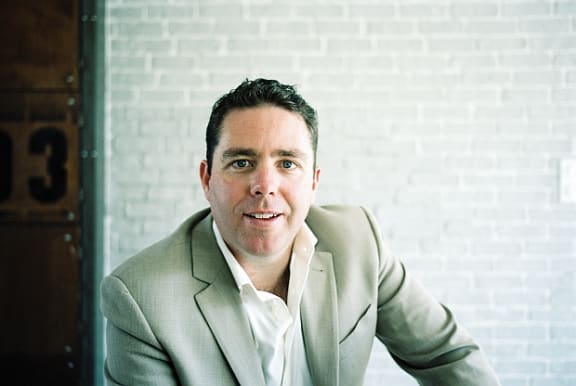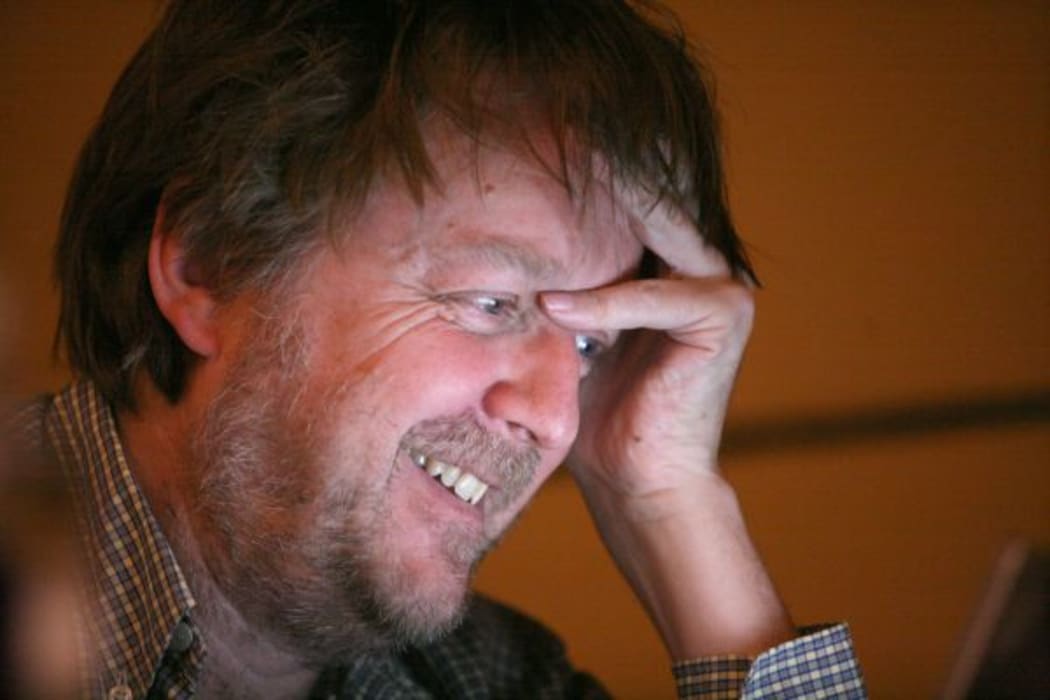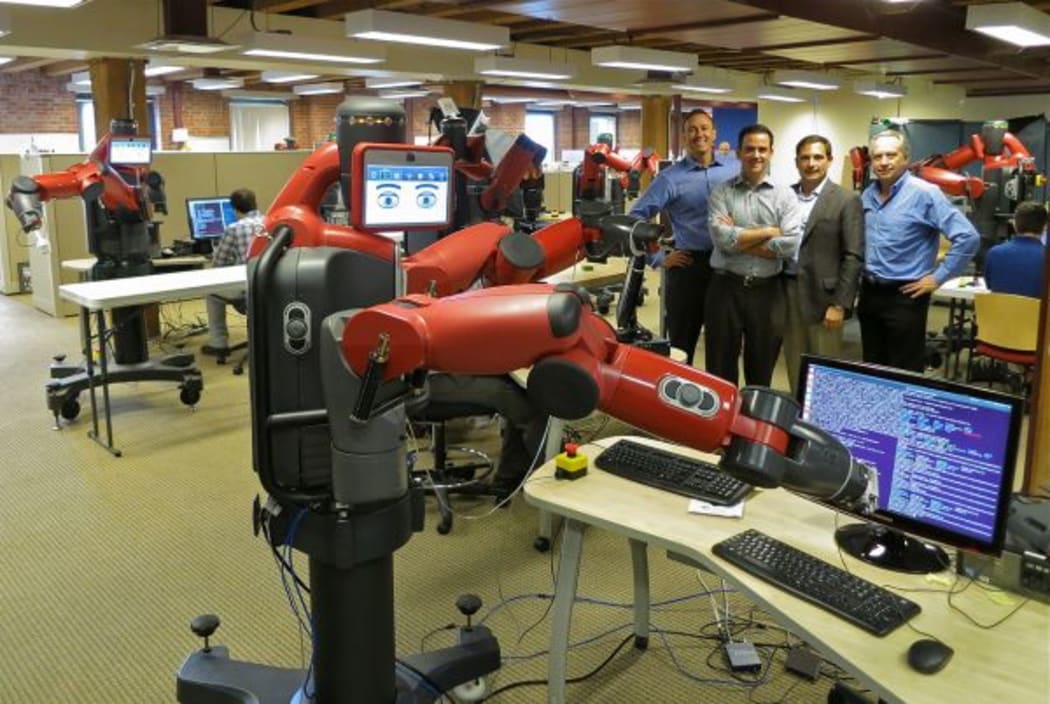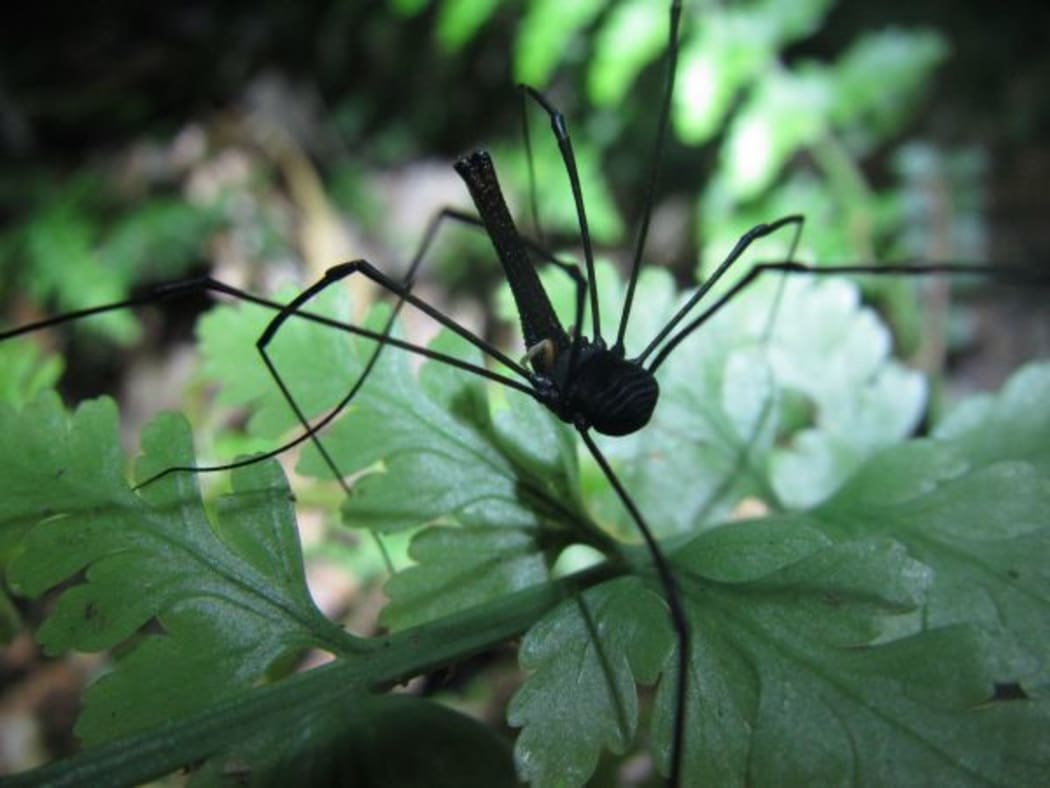This Way Up for Saturday 19 December 2015
This Way Up Part 1
Broadband prices, understanding Alzheimer's, treating phobias using VR, and how Football Manager blurs gaming and reality.
Tech News: Broadband rates rise and UBER

Tech commentator Peter Griffin. Photo: Supplied
Peter Griffin has tech news, and broadband prices look like they're on the way up. Plus Uber and Facebook team up to make ordering a cab even easier, and safety fears over the hoverboard.
Understanding Alzheimer's

John Hardy Photo: Supplied
Alzheimer's disease is an incurable neurological condition that affects 35 million people worldwide. Almost 30,000 New Zealanders live with the disease, and there are predictions this figure will double over the next 15 years as we age.
But our understanding of what actually causes Alzheimer's and how it develops is still unclear. so finding a cure or a way to prevent it has been tricky.
Professor John Hardy is a British brain scientist whose work was recognised last month with a US$3 million (NZ$4.5 million) award from some of the biggest names in the world of technology.
He talks with Simon Morton about what he's learnt about the genetic basis of Alzheimer's and treatments for it from studying the brains of sufferers.
Treating phobias with virtual reality

Kristen Brown Photo: Supplied
Psychologists and counsellors are finding virtual reality (VR) headsets an effective tool for the treatment of our deepest fears and anxieties.
With a profusion of VR hardware coming onto the market (including Samsung's Gear, Microsoft's HoloLens, Sony's Project Morpheus and the Oculus Rift) the prospects for virtual reality technology seem endless, and not just for gaming either.
For example, it's being used to train bus drivers to get used to new road layouts, and a new wave of innovation is targeting opportunities in areas like family photos, messaging, DIY and product assembly instructions.
At the heart of VR's appeal is its ability to simulate the real world in an entirely immersive, realistic and coherent way. This is also proving useful for psychologists and counsellors treating our anxieties and phobias, conditions that affect 1 in 10 of us during our lifetimes according to the Royal College of Psychiatry.
Simon Morton gets the latest from technology reporter Kristen V Brown, who recently saw these virtual treatments in action.
Football Manager

Football Manager Malcolm Allison Photo: OS
Football Manager is a video game based on simulating life as a professional football manager's job.
The game is incredibly detailed, from the buying and selling of players to salary caps and team talks.
Gaming journalist Simon Parkin explores its global appeal.
This Way Up Part 2
Science's breakthrough discoveries of 2015, NZ Falcons, rise of the robot workers and animals' exaggerated weaponry.
Method of gene editing named scientific breakthrough of 2015

Photo: CC BY 2.0
A method of editing the genetic code has been named the journal Science's Breakthrough of the Year 2015.
Called CRISPR (“clustered regularly interspaced short palindromic repeats”), the technique involves precisely targeting parts of our genome by either cutting or pasting DNA. It's a tool that bacteria themselves use as a defense weapon, which is now being manipulated by scientists.
The work was done by two scientists - Jennifer Doudna from the University of California, Berkeley, and Emmanuelle Charpentier, now at the Max Planck Institute for Infection.
The technique is proving controversial but there is no doubting its impact and its potential usefulness. With an estimated 7.9 million children born with a serious birth defect of genetic or partially genetic origin around the world every year, the hope is that CRISPR could help stop diseases like like cystic fibrosis and Huntington's.
But there are fears the same technique could be used to change a person's genes to manipulate their appearance, intelligence, or even their identity.
According to Dr Chris Smith of The Naked Scientists some commentators have likened the CRISPR system to the Model T Ford, highlighting its "dependability, affordability and a transformative effect on society".
Other breakthroughs nominated for the year that achieved runner-up status included the New Horizons mission to Pluto, the development of an Ebola vaccine, and the discovery of the remains of homo naledi deep in a cave in South Africa.
The NZ Falcon
The New Zealand falcon or karearea is New Zealand's only endemic bird of prey. We head out with Hugh Robertson, one of the authors of The Field Guide to the Birds of New Zealand, to find some.
Rise of the Robots

Baxter the Robot Photo: CC2.0
Martin Ford considers the future of the world's workforce in his book 'The Rise of the Robots' (One World).
Exaggerated weaponry

A male harvestmen Photo: Supplied
Survival of the fittest....where the individual who's fittest is the one who creates the most offspring.
Some of us try the non-evolutionary approach with aftershave or perfume, candle lit dinners or a romantic bike ride. But if you're a male harvestmen, in the class of arachnids, having a massive set of jaws makes you very fit indeed.
In some species of harvestmen, a bug that lives here in NZ and all around the world, they've evolved whopping great jaws that are 10 times longer than their body and weigh more than half of their total body weight! That's like a human having a jaw 20 metres long...great for eating whole cows but not so flash in a fight.
Why have some of these harvestmen evolved such an extreme set of gnashers? Greg Holwell at the University of Auckland is interested in these 'exaggerated weapons' that appear throughout the animal kingdom.